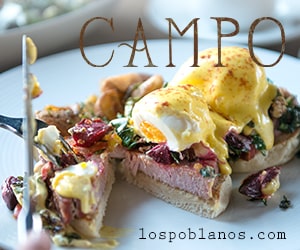A solar eclipse occurs on June 1 this year. “Eclipses don’t have good influences on growth,” says Marisol Gallegos, caretaker at Morning Star Farm in Arroyo Seco. “They’re generally not a good time for planting at all.” Marisol Gallegos and her husband Keith are reaping an in-depth education at Morning Star, a two-acre enterprise located north of Taos, in their first season as full-time farmers.
It wasn’t the first time the couple had consulted a calendar when crafting their planting schedule. On April 25 and 26, they anticipated planting 4,000 leeks, beets, parsnips, turnips and rutabagas based on a biodynamic calendar. But Mother Nature had other plans, showering the area with snow, rain and hail on those days. “What I’m really getting, is that you can have these great calendars but nature is really in charge,” Marisol says.
Marisol met the farm’s owner, Melinda Bateman, while working at a Taos-based Waldorf school. A native of Ecuador who attended high school and college in Kansas, Marisol worked at the school as a Spanish teacher where Melinda taught handwork. Melinda asked if Marisol would like to work on her farm that summer. That was in 2001 and Marisol wanted to learn more about biodynamic farming. Ten years later, Marisol and Keith are testing their farm management skills, while Melinda takes on an off-farm sabbatical.
Biodynamic farming predates organic farming and puts practitioners in touch with how planting and harvesting are part of a larger farm ecology and a cosmology based on an astronomical calendar. “We take into account the soil and what’s all around the plants,” Marisol explains. “We also work closely with the cycles of the moon. It’s almost a spiritual way of farming.” Farmers try to create self-regulating, diverse ecosystems in order to encourage healthy land development. Rather than artificial chemicals, biodynamic farmers nourish crops with manure and compost, practice regular crop rotations and plant cover crops. Fermented biodynamic herbal and mineral preparations stimulate plant growth, improve compost’s nutrient content and cause unmistakable changes in soil structure. Adopting a positive attitude while tending the land is also considered important.
It seems to work at Morning Star, which grows an astonishing array of vegetables and herbs, especially given the altitude and growing season around Taos. This is true abundance, when the rest of us are clearing out raised beds and watching seedlings appear in their trays. Unheated greenhouses shelter spring crops that await transplantation into prepared beds. These crops often include salad mix and Oriental greens such as arugula, mizzuna, and senposai which love this climate and grow well where it is cooler.
As a CSA, which stands for community supported agriculture, Morning Star is a community enterprise, in which growers and consumers share the bounty and risks of the farm. Shareholders select what produce they want each week, and pick food up from one of two locations. Buying a share helps to promote local agriculture by sustaining a farm business throughout the year, rather than intermittently at the market.
Several years ago, I met owner Melinda at her farm. It was a cool September morning and immediately, I felt at peace amid plump carnival acorn squashes, magenta-hued beets and garlic bulbs the size of fists. Enormous kale leaves and plump carrots awaited harvest. Lush soil and brilliant sunshine hosted bright green leeks, plump potatoes and sunny pumpkins.
“I love biodynamic farming because the farm is no longer just about the production schedule, marketing, budgets and soil management,” Melinda said. “It becomes this magical blending of your senses, trying to perceive subtle natural forces that are at work, and figuring out how to use them to strengthen the farm.”
Late in 2010, Melinda brought her community more actively into the farming enterprise. As the spring planting season begins, I meet this time with Marisol and Keith, who have been entrusted with the farm in Melinda’s absence. They are responsible for the farm, the CSA, a blog and continuous web site updates. “Marisol has a connection with the farm,” Melinda said. “And Keith is one of those special guys that can figure out how to do anything; hence my willingness to hand over the reins.” Keith is also an accomplished builder of straw bale homes.
Marisol and Keith agree that biodynamics is a very natural way of growing food in which you consider the farm as a whole being. “Sometimes you have to think a little bit outside the box,” Keith says. “Seeing is believing and maybe eating is believing too. We have shareholders who say they feel so much better while they’re eating this food.”
Carl Rosenberg and Romany Wood have been shareholders since 2001. “We’ve been friends and supporters, ever since,” Carl says. “We like the farm and we love the herbs. We like what Melinda―and now Marisol and Keith―are doing there, and we like supporting biodynamic farming.”
“Melinda said she was pretty comfortable with us doing whatever we felt was the best way to run the farm,” Keith says. “We started looking at the business plan and getting together the members’ list. Our current plan is to give back to Melinda around Thanksgiving, and we hope that she will be completely rejuvenated.” Morning Star CSA membership has already increased by 50 percent.
Heirloom lettuce and pungent fennel, crisp cucumbers and meaty crimson tomatoes are just a few items available in Morning Star summer shares. Imagine picking up your food and then filling your car with aromatic basil, tarragon and other herbs, breathtaking seasonal flower bouquets, and eggs from free-range chickens that eat organic grains.
“We think this is a really important thing for our community,” Marisol says. “This is something that Keith and I want to do for the rest of our lives; we want to go back to Ecuador and farm there.”
Many traditional Ecuadoran farms also follow moon cycles, with a number of plantings occurring near the full moon. Much transplanting takes place when the moon is descending and going through the earth signs. Giving thanks and ‘offerings’ to the earth are important when spraying dynamic preparations in Ecuador, as well. Some plants used for biodynamic composting at Morning Star, such as chamomile, valerian and oak bark are also used as companion plants in Ecuador.
Whether it is the moon that invests the energy bringing abundance to Marisol and Keith, their mentor Melinda, the people who eat this bounty, or whether it is merely the sheer passion that these people have for the soil, this is a star worth following!
Edible celebrates New Mexico's food culture, season by season. We believe that knowing where our food comes from is a powerful thing. With our high-quality, aesthetically pleasing and informative publication, we inspire readers to support and celebrate the growers, producers, chefs, beverage and food artisans, and other food professionals in our community.













